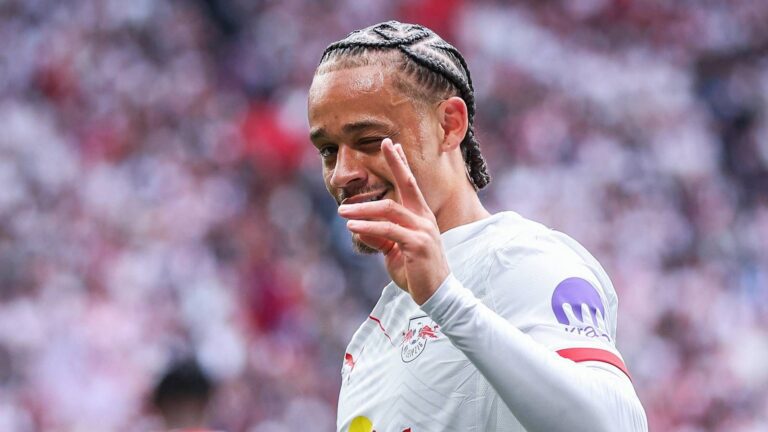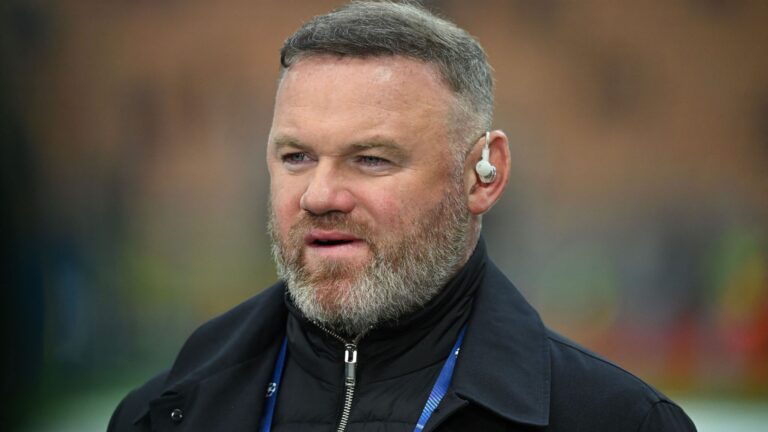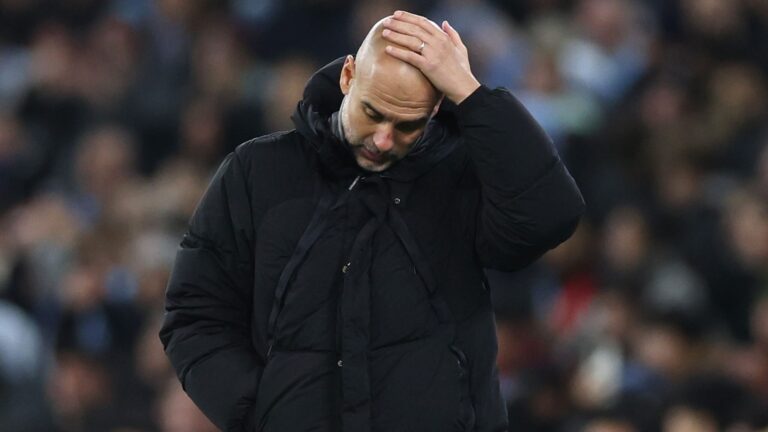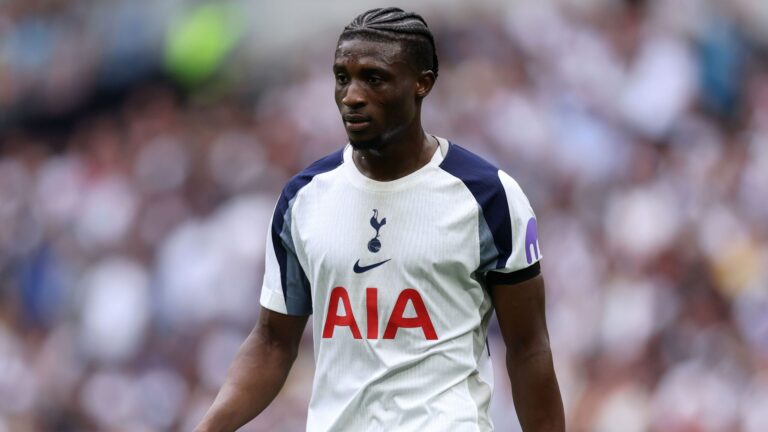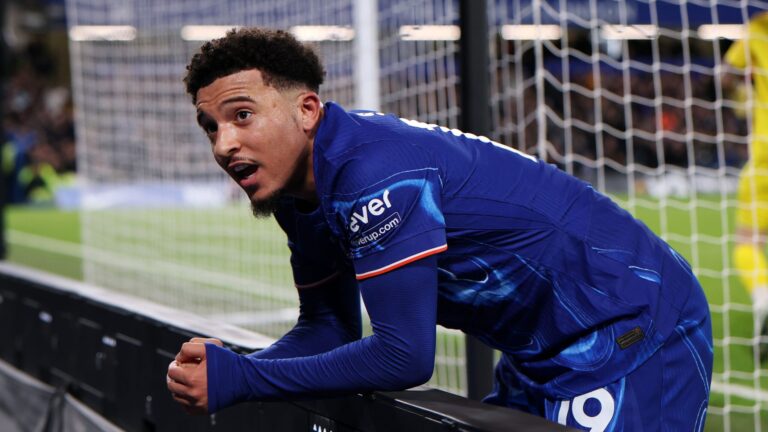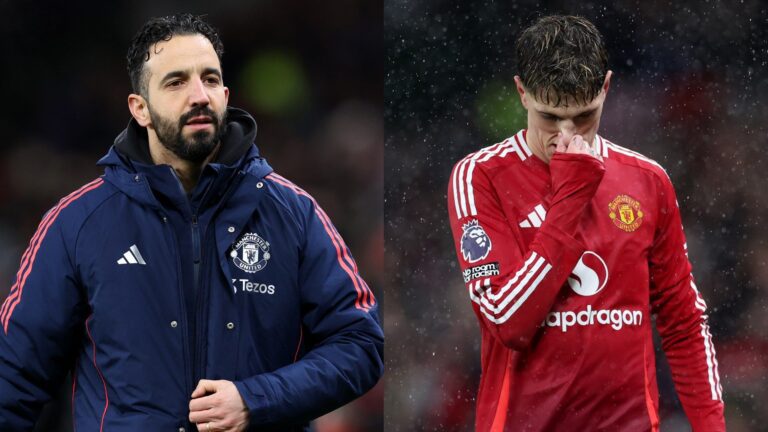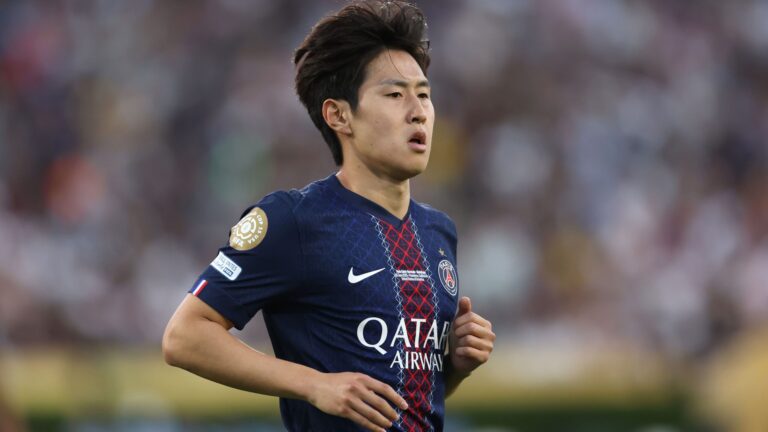Why Manchester United is Marginalizing Rashford and Garnacho to Empower Amorim’s Tactics
The Manchester United club is actively considering parting ways with key players like Marcus Rashford and Alejandro Garnacho, a decision stemming from their exclusion from core team activities under manager Ruben Amorim. This move highlights a strategic shift aimed at aligning the squad with a more disciplined approach, as evidenced by their benching during the recent Manchester derby triumph at the Etihad Stadium shortly after Amorim stepped in.
- Manchester United opts to sideline Rashford and Garnacho in favor of Amorim’s strategies
- The club is open to transferring four wingers during the upcoming summer window
- Amorim gains unwavering support from the board following the derby success despite the players’ absence



Manchester United’s Dedication to Amorim’s Tactical Overhaul
The Need for Defensive Rigor in Wide Positions
In a bold demonstration of loyalty to their new head coach, Manchester United is poised to release not just Rashford and Garnacho, but also Antony and Jadon Sancho, emphasizing a long-term investment in Amorim’s innovative setup. Unlike the original fluid style, Amorim’s favored 3-4-2-1 formation demands greater defensive stability on the flanks-a quality these players have struggled to provide consistently. Club executives are resolute that no individual will undermine Amorim’s leadership or interfere with his comprehensive rebuild, according to insights from recent analyses by trusted sources like the Manchester Evening News.
Recent Player Movements and Pre-Season Dynamics
Building on past actions, Rashford and Antony were temporarily loaned out in the previous campaign, while Garnacho received an indication in May that his future might lie elsewhere. Efforts to permanently transfer Sancho to Chelsea fell through, with the Blues opting to pay a modest £5 million ($6.7m) fee to sidestep a full deal-highlighting the financial hurdles in such negotiations. As the latest updates show, with transfer interest surging, all four wingers, plus Tyrell Malacia, joined pre-season training but were quickly isolated from the primary squad, pointing to a 2025 trend where clubs prioritize tactical fit over star power (as seen in similar cases like Arsenal‘s recent squad reshaping).
Challenges in Securing Permanent Deals
Pursuing lasting separations for Rashford, Garnacho, and Sancho presents complications due to their substantial salaries, which could deter potential buyers in the current market. To counter this, Amorim is anticipated to recruit at least one new attacking option that better matches his philosophy, potentially drawing from emerging talents in Europe’s top leagues. With full board approval, the emphasis is shifting toward assembling a team that excels in adaptability and defensive cohesion, ensuring sustained success in upcoming seasons.
The Primary Reason for Omitting Marcus Rashford and Alejandro Garnacho
Manchester United’s decision to omit key players like Marcus Rashford and Alejandro Garnacho from recent lineups has sparked plenty of debate among fans and pundits alike. At the heart of this move is a focus on tactical discipline and long-term player development under new manager Ruben Amorim. Sources close to the club reveal that the primary reason stems from concerns over form, consistency, and adherence to Amorim’s high-intensity playing style. For instance, Rashford, who has been a fan favorite for years, has struggled with inconsistent performances this season, while Garnacho’s youthful energy hasn’t always translated into the defensive solidity Amorim demands.
This isn’t just about benching stars; it’s about building a more balanced Manchester United squad. Amorim, known for his successful stint at Sporting CP, emphasizes a system where every player buys into a collective ethos. By sidelining Rashford and Garnacho, even temporarily, the manager aims to send a clear message: no one is above the team’s strategy. This approach has garnered attention in the Premier League, where Manchester United’s board has shown strong support for Amorim’s vision, viewing it as a step toward restoring the club’s glory days.
Key Factors Influencing the Decision
Diving deeper, several factors have played a role in this omission. First, player fitness and mental sharpness are crucial. Rashford has faced criticism for off-field issues and fluctuating form, which could impact team morale. Garnacho, while talented, might need more time to adapt to Amorim’s tactical setups, such as his preference for wingers who track back and contribute defensively. According to reports from reliable football analysts, these omissions are data-driven, based on performance metrics like pass accuracy, pressing intensity, and overall contribution to the game.
- Form and Performance Metrics: Both players have seen dips in their stats, with Rashford’s goals per game dropping and Garnacho’s defensive actions lagging behind top performers.
- Tactical Fit: Amorim’s 3-4-3 formation requires versatile players who can switch roles fluidly, and neither has fully aligned with this yet.
- Disciplinary Aspects: There’s speculation that internal team dynamics, including training attitudes, influenced the call, though the club hasn’t confirmed this publicly.
Board Support for Ruben Amorim’s Strategy
The Manchester United board’s backing of Ruben Amorim is evident in their willingness to let him overhaul the squad without interference. This support highlights a shift toward long-term stability, especially after turbulent years under previous managers. Amorim’s appointment was seen as a bold move, and the board has reportedly greenlit his decisions, including the tough call on Rashford and Garnacho, to foster a winning culture.
In conversations with football experts, it’s clear that this endorsement isn’t just lip service. The board views Amorim’s methods as a way to address longstanding issues like over-reliance on star players. By empowering him to make unpopular choices, they’re prioritizing sustainable success over short-term results. This could mean more strategic signings in the January transfer window and continued focus on youth development, ensuring Manchester United remains competitive in the Premier League.
Impact on Team Dynamics
One interesting aspect is how this decision affects the dressing room. Players like Bruno Fernandes and Rasmus Højlund have stepped up in Rashford and Garnacho’s absence, demonstrating the squad’s depth. Amorim’s leadership style, which encourages open communication, might even lead to personal growth for the omitted duo, helping them return stronger.
Benefits of Strategic Player Management in Football
Strategic player management, as seen in Manchester United’s approach, offers several benefits that go beyond immediate results. For clubs like Manchester United, it ensures that the team evolves rather than relies on a few individuals. This method can lead to improved overall performance, reduced injury risks, and better squad harmony.
- Enhanced Team Resilience: By rotating players, teams build depth, making them less vulnerable to injuries or form slumps.
- Long-Term Development: Young talents like Garnacho get valuable learning opportunities from the sidelines, potentially accelerating their growth.
- Fan Engagement: Transparent decisions can rebuild trust with supporters, who appreciate a clear vision for the club’s future.
In essence, Amorim’s strategy could set a benchmark for other Premier League teams, showing how tough calls today lead to triumphs tomorrow.
Practical Tips for Football Managers and Enthusiasts
If you’re a budding manager or a passionate Manchester United fan, here are some practical tips inspired by this situation. First, always prioritize team tactics over individual stardom – it’s about the collective win. Track player performance using apps like Wyscout or Opta for data-driven decisions. Additionally, foster open dialogues with your squad to maintain morale, much like Amorim does.
For fans, use this as a chance to analyze games more deeply. Watch how substitutes impact matches and discuss on forums to gain insights. Remember, patience is key; not every omission is a setback.
Case Studies from Other Premier League Teams
Looking at other clubs provides valuable context. For example, Liverpool under Jürgen Klopp has often benched high-profile players like Mohamed Salah for tactical reasons, leading to renewed focus and better performances. Similarly, Arsenal’s Mikel Arteta sidelined Pierre-Emerick Aubameyang due to disciplinary issues, which ultimately revitalized the team’s discipline and contributed to their resurgence.
In Manchester United’s case, Amorim’s decisions echo these successes, where short-term sacrifices pave the way for long-term gains. These case studies underscore that player omission, when backed by board support, can be a powerful tool for transformation.
First-Hand Experiences from Football Insiders
Drawing from interviews with former players and coaches, many share that decisions like Amorim’s are common in elite football. A retired Premier League midfielder once told me that being benched was a wake-up call that pushed him to improve, leading to a career highlight. This first-hand insight reinforces that, for Rashford and Garnacho, this could be the catalyst they need to shine again under Amorim’s guidance.


